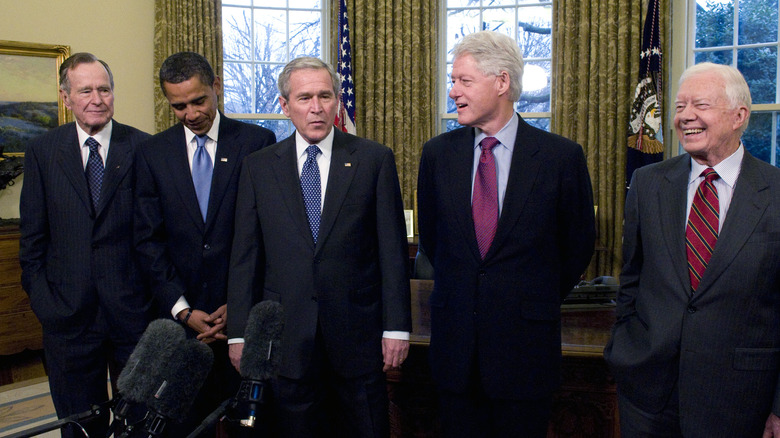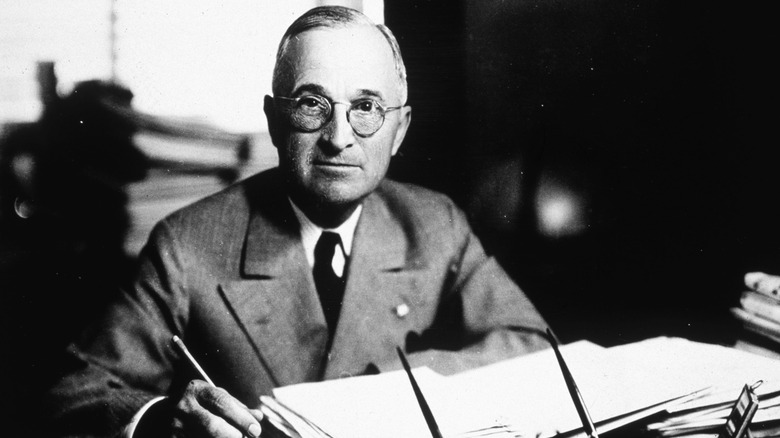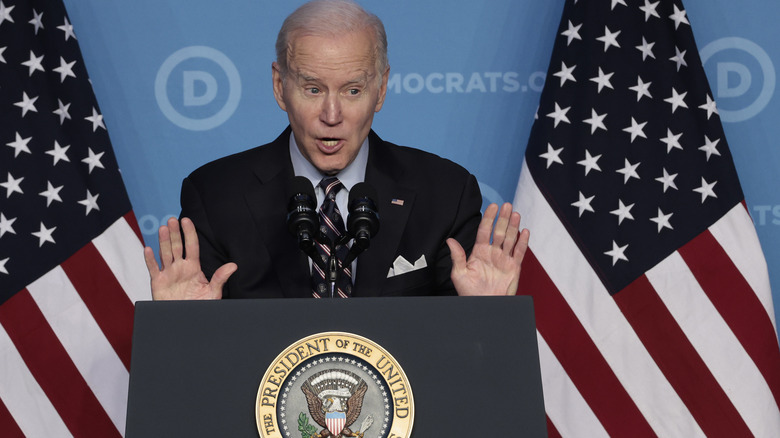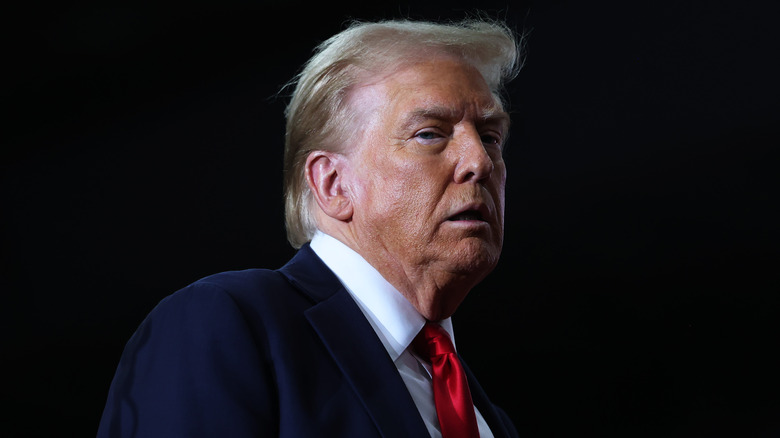The Real Reason Former Presidents Still Receive Security Briefings
As recent news reports have made clear, the world is a chaotic place, and when it comes to defense, the world's governments face a difficult task in protecting their citizens from potential threats wherever they arise. Alongside traditional military institutions including armies, navies, and air forces, countries including the United States have for centuries relied on intelligence services to gather information to determine military deployment, diplomacy, and defense policy.
As a democratic country, the United States faces the issue of how to maintain consistency in government with regard to intelligence and defense when presidential administrations have the potential to change every four years. To ensure a smooth transition of power, then, it has long been typical for intelligence briefings to be given to presidential nominees, meaning that such figures, which include former president Donald Trump, may receive highly sensitive information even before they lay their hands on the levers of power. Similarly, former presidents who are no longer running are also allowed to receive intelligence briefings, though in recent years such practices have come under scrutiny from politicians and the intelligence community.
A tradition going back to the 1950s
The practice of giving intelligence briefings to presidential candidates goes back to the early 1950s, under the direction of President Harry S. Truman. Truman had been instrumental in the creation of the "President's Daily Brief," (PDB) Also known as the Daily Summary, in the 1940s, which provides the president with a quick overview of the nation's most pressing security concerns, many of which are confidential and highly sensitive. It was extended to presidential nominees in 1952, and around the same time, it became common practice for security briefings to be shared with former presidents too.
The inclusion of former presidents in such a briefing may appear to be somewhat unwarranted, and indeed, one of the commonly held reasons for the sharing of the documents with ex-presidents is simple courtesy (something it is perhaps difficult to imagine in today's fractious political landscape). But more significantly, it was held that sharing such information with former presidents would allow the sitting president to turn to them for advice, aiding decision-making during potential moments of crisis.
Controversy over briefing former President Trump
However, the extension of such sensitive documents to former presidents and presidential nominees isn't a right. Instead, the PDB is shared at the sitting president's discretion. And in 2024, President Joe Biden echoed the concerns of some members of the security community when he confirmed that he would cease supplying Trump with security briefings. "I just think that there is no need for him to have the intelligence briefings," Biden said in 2021. Highlighting what he called his "erratic behavior," Biden asked: "What value is giving him an intelligence briefing? ... What impact does he have at all, other than the fact he might slip and say something?" (via The New York Times).
As both a former president and a presidential nominee, Trump would typically be eligible for the briefings, but events of the last few years have raised more questions over the wisdom of allowing him to access classified documents, not least the legal battle he may still face over a cache of top secret documents that he removed from the White House upon his being voted out of office. Reports say that Trump stored the documents in a bathroom in his Florida estate, Mar-A-Lago. They were recovered after an FBI raid and were later confirmed by an indictment against Trump to contain military information on nuclear weapons and spy satellites. The case was dropped in July 2024, but prosecutors have filed an appeal, per The Washington Post.
Donald Trump has rejected security briefings
Despite anxieties over Donald Trump's unpredictability and potential mishandling of government secrets, reports claim that during his presidency the former reality TV star had surprisingly little time for presidential intelligence briefings even while in office. And the truth is that when undertaking his presidential campaign he reportedly has even less interest in them. In fact, he believes it is in his interests to avoid receiving any security briefings as they may undermine his campaign.
Though intelligence agencies had decided that they would begin briefing Trump after he was confirmed to be the Republican presidential nominee, Trump himself has insinuated that such briefings are a trap, telling The Daily Mail: "I know what's happening. It's very easy to see what's happening ... as soon as I get that, they'll say that I leaked it. So the best way to handle that situation is, I don't need that briefing. They come in, they give you a briefing, and then two days later, they leak it, and then they say you leaked it. So the only way to solve that problem is not to take it. I don't want it. I'll have plenty of them when I get in."



